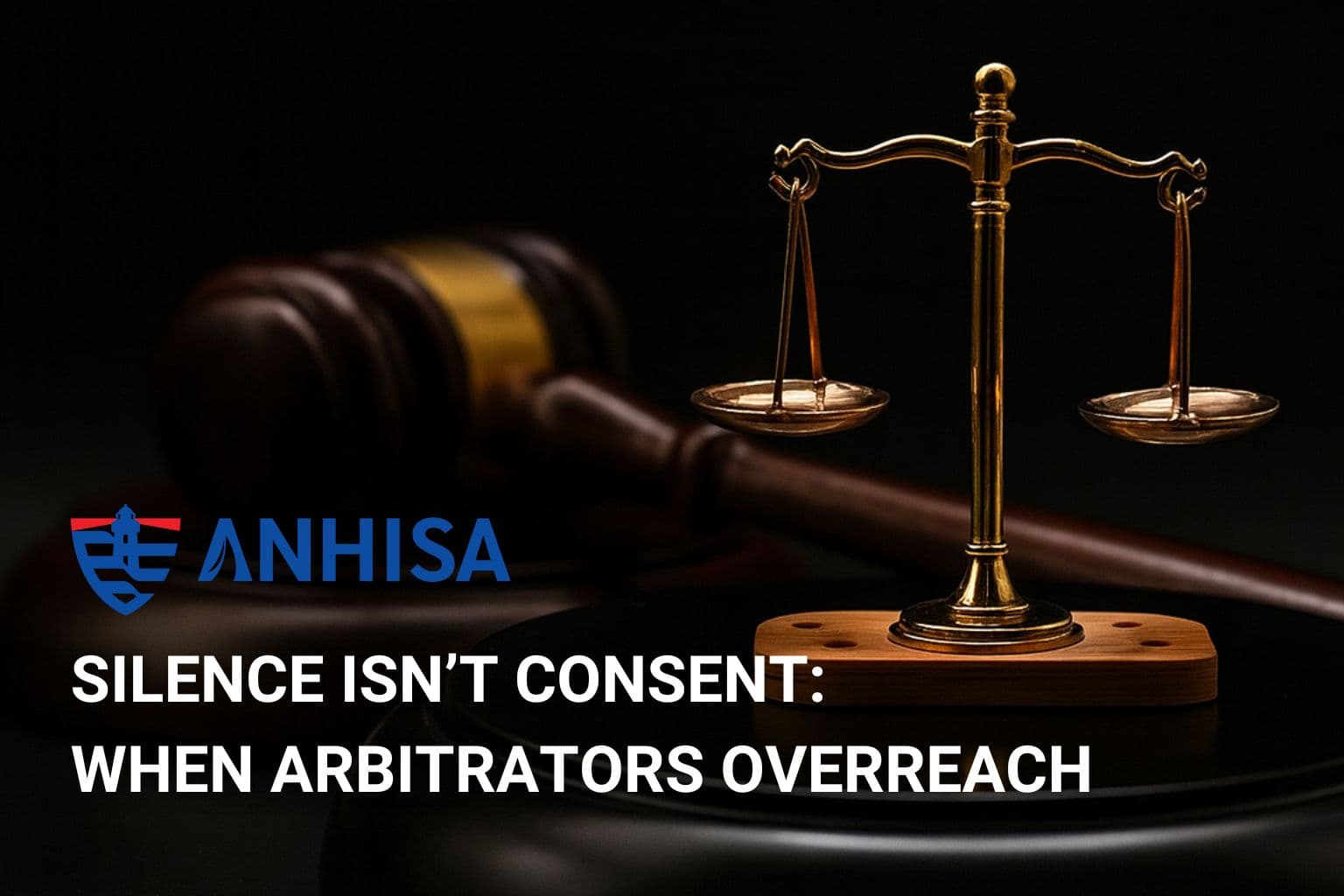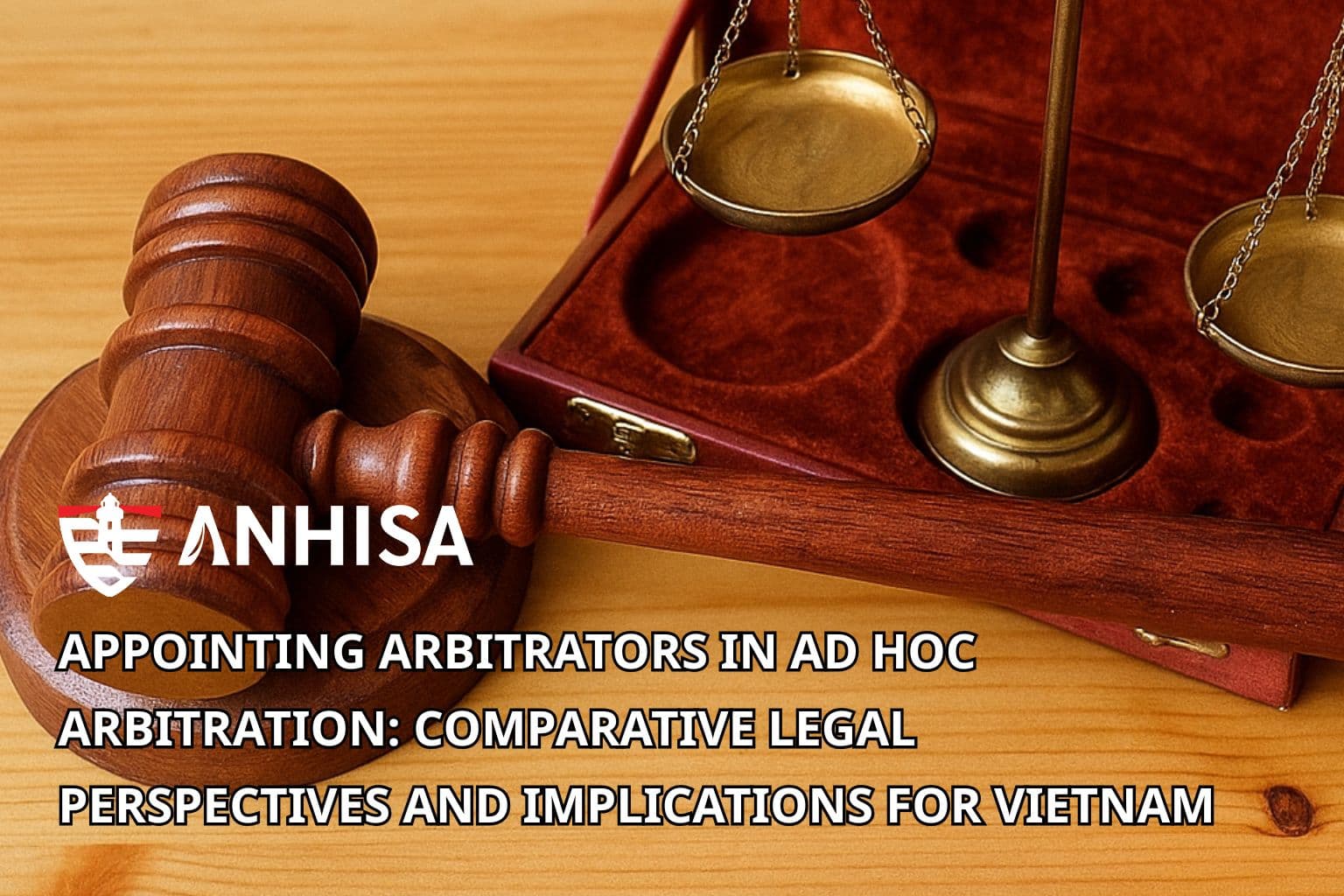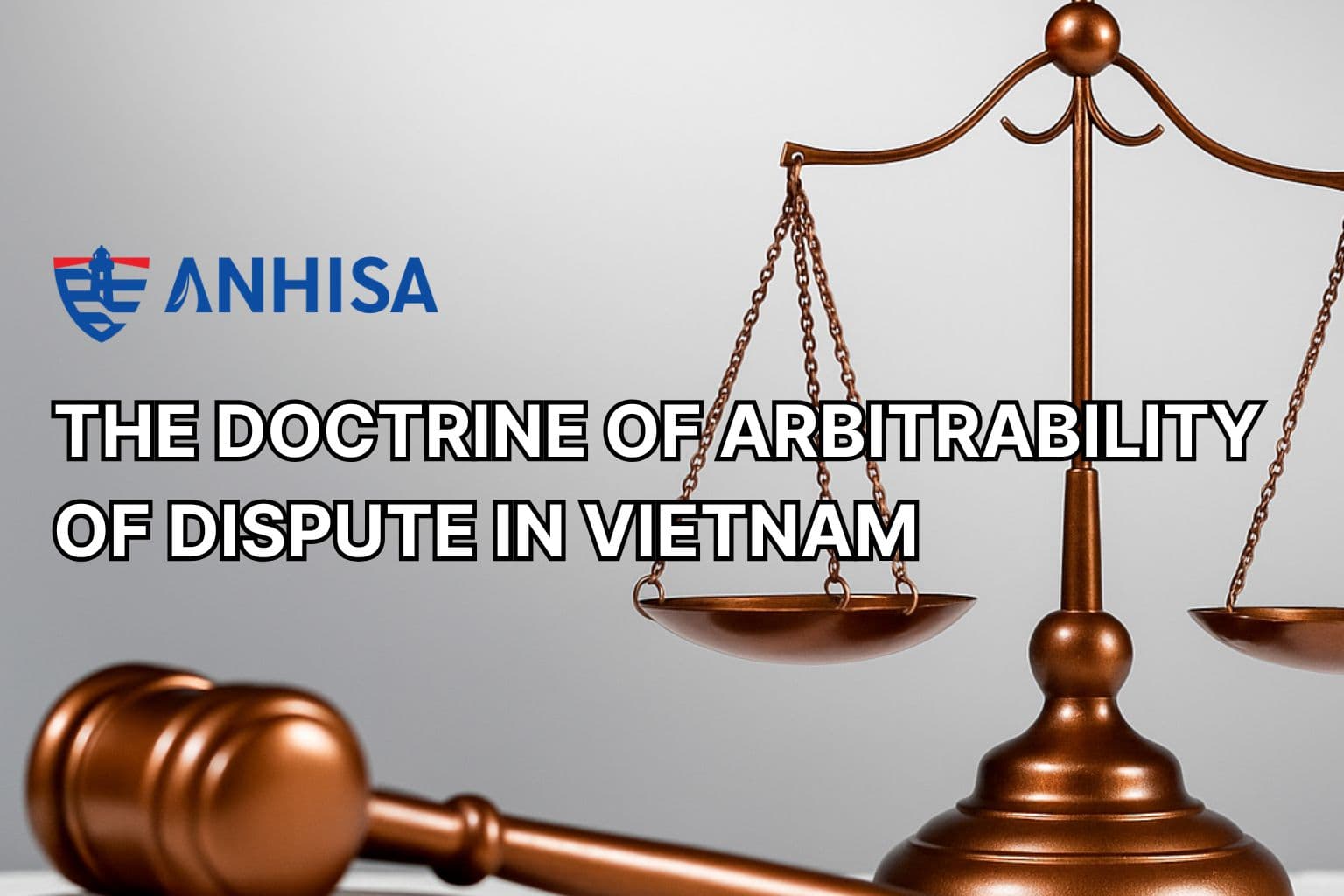ARBITRATION: VALIDITY OF AN ARBITRATION AGREEMENT
September 17, 2025
Foreword
The validity of an arbitration agreement often serves as a critical gateway: without a valid arbitration agreement, arbitral tribunals lack jurisdiction, and any resulting award may be set aside or denied enforcement. Therefore, it is essential to examine whether an arbitration agreement meets the legal requirements imposed under international conventions and domestic arbitration laws.
Requirements for a Valid Arbitration Agreement
1. Form of Arbitration
The form of an arbitration agreement is a threshold issue that determines whether a tribunal may assume jurisdiction over a dispute. It is a universally accepted requirement that the agreement must be in writing, but the precise interpretation of “in writing” varies across legal instruments.
Article II.1 The 1958 New York Convention (“New York Convention”) requires the arbitration agreement to be in writing, either as a clause in a contract or as a separate agreement. Article II.2 further defines a written agreement as one that is “signed by the parties or contained in an exchange of letters or telegrams”. This definition reflects the communication methods of its time and does not explicitly cover modern forms such as email or electronic data exchange.
In contrast, the UNCITRAL Model Law on International Commercial Arbitration (2006 revision) (“UNCITRAL Model Law”) provides a broader and more modern understanding of what constitutes a written arbitration agreement. Article 7.3 – 6 includes the following provisions:
- An arbitration agreement is in writing if its content is recorded in any form, regardless of whether the agreement or the contract was concluded orally, by conduct, or by other means;
- The requirement is satisfied by electronic communications, including emails, faxes, telegrams, or any form of data message, provided that the information is accessible and usable for future reference;
- An agreement is deemed to be in writing if it is alleged by one party in the statement of claim and not denied by the other in the statement of defense; and
- A reference in a contract to another document containing an arbitration clause qualifies as a written agreement, provided that the reference makes the clause part of the contract.
This more inclusive approach has influenced many national arbitration laws, including Vietnam’s 2010 Commercial Arbitration Act (“VCAA”). Article 16.1 of the VCAA adopts a modern and practical interpretation of “writing”, consistent with the UNCITRAL Model Law. It provides that an arbitration agreement must be in writing and explicitly recognizes the following as valid written forms:
- Agreements formed through exchange of information via telegram, fax, telex, email, and other methods prescribed by law;
- Agreements evidenced by written exchanges between the parties; Agreements recorded in writing by a lawyer, notary, or competent institution at the request of the parties;
- Agreements formed through incorporation by reference, such as referring to a document (contract, charter, or similar) that contains an arbitration clause; and
- Agreements established through the exchange of statements of claim and defense where one party asserts the existence of an arbitration agreement and the other party does not deny it.
This flexible framework under Vietnamese law reflects an intention to uphold the parties’ agreement to arbitrate, even in the absence of a formally signed document, provided that the parties’ intent can be clearly established and the form meets accessibility and evidentiary standards.

2. A defined legal relationship
An arbitration agreement is formed based on the parties’ mutual consent; however, the scope of disputes resolved by arbitration is not confined to disputes arising out of contractual relationships. Pursuant to Article II(1) of the New York Convention and Article 7 of the UNCITRAL Model Law, the existence of a “defined legal relationship” between the parties – whether contractual or not – is sufficient to form the basis of a valid arbitration agreement.
In commercial practice, parties often adopt arbitration clauses with very broad wording, for example: “all disputes arising out of or in connection with this contract shall be referred to arbitration.” This wording reflects the parties’ intention to extend the scope of arbitration beyond disputes directly arising from the contract to also include non-contractual disputes that are closely connected with it.
A notable illustration of judicial interpretation of the above clause can be found in Kaverit Steel Crane Ltd vs. Kone Corporation[1] in Canada. The claimant (Kaverit) brought proceedings before the court asserting multiple causes of action, including breach of contract and non-contractual claims such as conspiracy and inducing breach of contract. The defendant (Kone) sought a stay of the court proceedings and referred the matter to arbitration, relying on a contractual clause providing that “all disputes arising out of or in connection with this contract” would be resolved by arbitration.
The trial court held that the non-contractual claims fell outside the scope of the arbitration clause and declined to refer them to arbitration. However, the Alberta Court of Appeal interpreted the clause more broadly: any dispute that stems from or is connected with the contractual relationship – whether framed as a contractual or a non-contractual claim – falls within the scope of arbitration. Consequently, the claims of conspiracy and inducing breach of contract, as they were based on the alleged breach of contract, were referred to arbitration. Only those claims wholly independent of the contract remained within the court’s jurisdiction.
3. Arbitrability: Matters Capable of Settlement by Arbitration
Arbitrability refers to whether a dispute is legally eligible for resolution by arbitration rather than by a national court. It marks the boundary between private adjudication and public judicial authority, reflecting state policy on which matters can be resolved privately and which must remain under judicial control.
While party autonomy is central to arbitration, it is limited by public policy considerations aimed at protecting state interests or vulnerable parties. Thus, arbitrability is not determined solely by party consent but also by mandatory legal rules in the jurisdiction of recognition or enforcement.
Both the New York Convention (Art. II.1 and V.2(a)) and the UNCITRAL Model Law (Art. 1.5) recognize this limitation by restricting arbitration to disputes “capable of settlement by arbitration”. In practice, most commercial disputes are arbitrable, but matters involving public law, status of persons, or sovereign interests, such as criminal, family, bankruptcy, or administrative issues, are generally excluded.
In Vietnam, for many years, the courts have held a traditional view that only disputes of a commercial nature can be resolved by arbitration. However, such a view is changed incrementally along with the development of arbitration as an important alternative dispute resolution.

4. Legal Capacity of the Parties in Arbitration Agreements
A fundamental requirement for a valid and enforceable arbitration agreement is that all parties must have legal capacity at the time of the conclusion of such agreement.
Regarding the applicable law to this matter, Article V.1(a) of the New York Convention requires that the party to an arbitration agreement is “under some incapacity” under the law applicable to that party. Similarly, Articles 34.2(a)(i) and 36.1(a)(i) of the UNCITRAL Model Law allow an award to be set aside or refused enforcement where one of the parties was under incapacity. Importantly, Article V.1(a) clarifies that the law applicable to determine capacity is the law governing that party.
For example, if an individual or company party to an arbitration agreement is Vietnamese, their legal capacity must be assessed under Vietnamese law. Thus, for an arbitration agreement to be valid, the individual must have full civil legal capacity under Vietnamese law, or the company must have been duly incorporated in accordance with Vietnamese legislation.
5. Proper Authority to Establish the Arbitration Agreements
Apart from the conditions mentioned above, an essential requirement for the validity of an arbitration agreement is the authority of the person establishing it. According to Article 18.2 of the VCCA, an arbitration agreement remains valid only if the parties establishing the agreement possess the proper authority in accordance with the provisions of the law.
In practice, arbitral awards are often set aside on the grounds that the arbitration agreement was established by a person without authority. When entering into transactions, companies often act through their legal representatives. In cases where a company has multiple legal representatives, the company’s charter usually specifies the scope of authority of each. As a result, not every legal representative listed in the enterprise registration certificate has the authority to establish an arbitration agreement. An arbitration agreement established by a person acting beyond their authority is therefore at risk of being set aside.
Another common scenario involves authorized representatives exceeding the scope of their authority. For example, an individual may authorize another person to act on their behalf in certain transactions, but the authorized person subsequently establishes an arbitration agreement, which lies outside the granted authority. If the principal was unaware of this or objects to this agreement, Vietnamese law provides that the arbitration agreement will be invalid, as it was established by a person lacking the requisite authority.
Vietnamese Practice on the Form of Arbitration Agreements
As mentioned in Section 1 of this article, the VCCA requires that an arbitration agreement must be established in writing. One of the valid written forms recognized under Vietnamese law includes agreements formed through the exchange of information via telegram, fax, telex, email, and other methods prescribed by law.
Where an arbitration agreement is established through electronic means such as telegram, fax, telex, or email, it becomes effective once the parties have mutually expressed their consent that arbitration shall have jurisdiction to resolve disputes arising between them in a specific matter. This means that a physical “signature” is not a mandatory requirement for arbitration agreements concluded through electronic communications.
Nevertheless, in practice, several Vietnamese courts still take the view that an arbitration agreement must be “signed,” rather than merely “established” through mutual consent evidenced by records of telegrams, faxes, telexes, or emails.
A typical example is the dispute over a sales contract between National Rubber and Hanoi Company, which was resolved by the Vietnam International Arbitration Centre (“VIAC”) in Award No. 17/11, which was subsequently set aside by dated 31 October 2012 of the Court of Ho Chi Minh City[2].
Specifically, National Rubber and Hanoi Company exchanged draft contracts by email through a third party, Thien Nga Company. Thien Nga prepared a draft sales contract containing an arbitration clause. It then sent one version of the draft (bearing the scanned signature and seal of Hanoi Company) to National Rubber for confirmation, and another version (without the scanned signature and seal) to Hanoi Company for confirmation.
National Rubber signed and confirmed the draft contract containing the scanned signature and seal of Hanoi Company and returned the scanned copy by email. Meanwhile, the legal representative of Hanoi Company signed and sealed the draft contract sent by Thien Nga and returned the scanned copy by email.
Notably, because the transaction was conducted electronically, National Rubber did not receive an original version bearing Hanoi Company’s wet-ink signature and seal, and conversely, the draft signed by Hanoi Company did not bear National Rubber’s wet-ink signature and seal.
Subsequently, the parties proceeded to obtain insurance and open an L/C without raising any objections regarding the content of the confirmed draft contract.
When disputes later arose in the performance of the sales contract, National Rubber initiated arbitration before VIAC, which rendered Award No. 17/11 in favor of the claimant. Hanoi Company, however, applied a motion to the Ho Chi Minh City People’s Court to set aside the award, arguing that no arbitration agreement had been signed with National Rubber.
The Court, in Decision No. 1598/2012/KDTM-QD dated 31 October 2012, decided to set aside the award on the main ground that no arbitration agreement in written form had been established between the parties. The Court held that the Arbitral Tribunal’s reliance on two draft contracts (each lacking the other party’s signature) to conclude that an arbitration agreement existed was inconsistent with the law.
This reasoning shows that the Court examined the form of the arbitration agreement primarily through the lens of whether the parties had “signed” a document containing the arbitration clause. In this case, given the nature of the transaction conducted via an intermediary and electronic means, it was practically impossible for the parties to execute a single document with both original wet-ink signatures.
However, if the form of the arbitration agreement had been assessed in accordance with the statutory provisions permitting agreements established through the exchange of telegrams, faxes, telexes, or emails, it is evident that National Rubber and Hanoi Company had both manifested their mutual consent to the draft contract, including the arbitration clause by confirming the drafts and exchanging scanned copies via email.
Conclusion
The validity of an arbitration agreement is a multifaceted issue that forms the foundation for the jurisdiction of arbitral tribunals and the enforceability of awards. To be valid, an arbitration agreement must satisfy key requirements: it must be in an acceptable written form, be based on a defined legal relationship, concern matters capable of settlement by arbitration, involve parties with legal capacity, and be concluded by individuals with proper authority.
International frameworks, such as the New York Convention and the UNCITRAL Model Law, provide broad and flexible approaches to these requirements, particularly regarding the form of arbitration agreements, allowing for modern methods of communication like emails and electronic exchanges. Vietnamese law, through the VCAA, reflects these principles and emphasizes the parties’ intention to arbitrate, even where traditional signatures are absent.
Practical challenges, however, remain, as illustrated by cases like National Rubber vs. Hanoi Company, where courts may still prioritize formalistic requirements over substantive intent, highlighting a tension between legal formalism and modern commercial practices.
Therefore, ensuring the validity of an arbitration agreement requires careful attention to legal form, capacity, authority, and scope of arbitrability. Parties seeking to arbitrate should ensure clarity and compliance with both international standards and domestic laws to safeguard the enforceability of their agreements and avoid jurisdictional challenges.
[1] Kaverit Steel Crane Ltd. v. Kone Corporation, 1992 ABCA 7 (CanLII), accessed at: VACANADA 6 Kaverit Steel CANLII
[2] Do Van Dai (2017), Volume 1: Vietnamese Commercial Arbitration Law, [62]
AUTHORS
DANG VIET ANH
Managing Partner
Mobile: (+84) 983 467070
Email: anh@anhisa.com
TRUONG CONG HONG
Senior Associate
Mobile: (+84) 909 814090
Email: hong@anhisa.com
TRAN THI BAO TRAM
Associate
Mobile: (+84) 332 245449
Email: baotram@anhisa.com
This article aims to furnish our clients and contacts with general information on the relevant topic for reference purposes only, without creating any duty of care on the part of ANHISA. The information presented herein is not intended to serve, nor should it be considered, as a substitute for legal or other professional advice.
ANHISA LLC AND OUR EXPERTISE
ANHISA LLC is a boutique law firm specializing in Dispute Resolution, Shipping and Aviation. Being the leading lawyers in various fields of law, our qualified, experienced, and supportive team of lawyers know how to best proceed with a case against or in relation to Vietnamese parties and are well equipped to provide clients with cost-effective and innovative solutions to their problems.
Regarding dispute resolution, we have represented Vietnamese and foreign clients in the resolution of disputes involving maritime, construction, commercial and civil matters. Our lawyers are well-equipped to offer services on a wide range of disputes and conflicts, whether cross-border or purely domestic, to appear before any Judges or Arbitral Tribunals. The firm is prepared to assist clients in designing the appropriate dispute resolution procedure to help resolve conflicts as efficiently and cost effectively as possible, which may involve combining elements of mediation and other methods such as arbitration.
Related posts

SILENCE ISN’T CONSENT: WHEN ARBITRATORS OVERREACH
November 27, 2025

APPOINTING ARBITRATORS IN AD HOC ARBITRATION: COMPARATIVE LEGAL PERSPECTIVES AND IMPLICATIONS FOR VIETNAM
October 08, 2025

PARTIES TO AN ARBITRATION AGREEMENT
October 01, 2025

THE DOCTRINE OF ARBITRABILITY OF DISPUTE IN VIETNAM
September 24, 2025
- EMAIL:
- om@anhisa.com
- office@anhisa.com
- TEL:
- Hanoi Office: +84 24 320 47609
- Saigon Office: +84 28 5416 5873
- HOTLINE:
- +84 (0) 939 117 398
- +84 (0) 983 488 380

